If you’ve been reading this newsletter for awhile, or read either of my last two books—The New Better Off or Learning in Public, or saw this TED talk, you know full well that I’ve spent the last decade living in a cohousing community that I deeply adore. I wrote this and this and this about cohousing, and probably so much more.
Well, we’ve officially moved.
I could write way too many words about everything I loathe about the real estate industry and the way it functions—full of subterfuge and jargon, games and obscene amounts of money. The cultural mores and financial systems tied up in the whole thing lead even kind, visionary, and generous people to stoop to selfish and small-minded versions of themselves. I won’t bore you with my full tirade. You probably have a similar one seething in your own brain and heart.
In contrast, we’ve had a restorative, holistic, and heart-filled experience—selling our beloved cohousing unit. In large part because we did it by owner, so we made up our own culture around the whole thing. The closing was yesterday, so I wrote this letter to the beautiful family that is taking on the stewardship of our house, and becoming part of our cohousing community. They’ve already demonstrated what collectively minded, relational, and justice-oriented people they are.
Dear Z’s…
It’s such a joy, next to the grief of change and loss, to know that you are the new stewards of our home. Now your home. As you write the next chapter of Unit E, perhaps it’s moving to know how much the past chapters have held.
We bought the house with a bit of trepidation, but lots of that most dangerous of emotions—idealistic hope. My dad thought it was a dumb financial decision to buy a home in cohousing. What could the resale value possibly be on such a strange arrangement? It was the first time that I can remember going against his advice on a big, financial decision. That felt hard, but we also knew that he was advising out of a place of fear and we wanted to make this decision out of a place of love. Love for each other—newly married and pregnant with our first kid, love of community, love of living in a way that made us feel awake and a little bit scared of our own daring.
I remember driving home on Telegraph Avenue, way under the speed limit, from the hospital with three-day old Maya. Both John and I were wide-eyed with wonder and worry. We were taking this little creature home—this place where, preposterously, the nurses and the midwife thought we could actually keep this baby alive on our own. John painstakingly removed Maya’s carseat from the back seat and set her on the sidewalk for a moment after we parked in the driveway. Kima, our tortoiseshell cat came up and sniffed the new creature, and looked up at me disdainfully, as if to say, “Really? Another new member of this family? Remember when it was just you and me and it was so calm and lovely?”
That was how it was for awhile—me and John learning how to be parents in Unit E (Kima begrudgingly adapting to the little, very loud tiny burrito that had come to live in our bed). You know the season—middle of the night desperation, early morning sweetness, all the endless minutes in between. I remember one night, probably about 8:30pm, when John and I lay absolutely exhausted in bed, and someone in the apartment building next door started having loud, riotous sex. We laughed so hard we cried at how different the moment we were living through was than the one this very happy woman was living through. We were happy, in a way, but not happy like that.
Toddler Maya made me a “cup of empathy” when we played coffee shop in the bathtub. She was little during the drought, so I only let her play with tiny pails of water outside our front door. She spent endless hours playing with the pebbles in Uncle Tom’s areas of the community and looking for ripe strawberries in the garden. I remember the first time, right outside the front gate, when she asked me about death. There was a dead butterfly on the ground and she picked it up with her little fingers, delighted, and then asked, “Why it don’t fly, mama?”
Your new home was once the shelter for a thousand new observations and theories of what the world is, so much wonder and learning and lightness and heaviness. After Maya there was Stella—a little joy bomb from the start, rolls on rolls on rolls, becoming sisters, becoming a family of four. As Stella started to become herself, my dad started to unbecome himself; I have a strong memory of nursing her—10 days old—and crying in my bed upstairs, having just been confronted with how much my dad’s brain was breaking.
After Stella arrived, there was political devastation. We thought her first conscious memory would be a female president. Instead it would be a depraved man. We had bought a used kid-sized rocking chair from a neighbor on Rich Street that John intended to rehab for Maya’s 3rd birthday. The night that the election results came in, John crouched outside the front door of Unit E sanding and sanding and sanding the rocking chair, trying to find an action to move his fear and anger through. Every time we looked at that beautiful, tiny, purple rocking chair in her innocent room thereafter, we could only think of our own misguided innocence and the sobering months after—leaving a love note at the mosque down the block, joining our neighbors in the streets, wrestling with our own notions of who this nation really was and could be.
This home was home, in other words, to our family formation and our political reckoning, and then, finally our pandemic transformation. I sat at the kitchen table, looking at the cherry blossoms out the window, and talking to our pediatrician about the fact that she had begun to wonder if Stella’s “strange pneumonia” back in late February was actually this new thing called coronavirus. Our little home became the whole world, or a whole world. Every afternoon that first month we got in the car and headed to the Redwoods, surrounding ourselves with the ancient trees deep breathing, their generational perspective, their solace. It helped us get through.
The other thing that helped us get through was, of course, the community. In the very early days, we posted jokes to one another in the windows. Eventually the kids became a masked pack—Maya and Stella, Max and MoMo, and little Nari. They roamed around the courtyard endlessly, calling themselves the “watermelon gang.” There was the day we hosted a party for Frida Kahlo’s birthday, drawing uni-brows on all of our faces. There was the night we watched Hamilton in the yard. There was the afternoon that the mothers of the watermelon gang sat at the picnic table, sharing their deepest frustrations and crying and laughing together. One mother taught us all the phrase “dayenu” and this helped us remember that the challah braiding and the witches’ spells and the loquat tree pilgrimages were enough, even as the world was sick and scared and we were exhausted.
This home, of course, was also the origin of one of my most important intellectual and political quests of the last decade—learning about our local school and why so many of our neighbors avoided it, then eventually sending both of our daughters there and falling in love with the community, the educators, the other kids who we came to know as our kids. I would come to write a book about that quest in the hopes that our own little origin would become a gateway for others to be curious and rigorous when their neighbors blacklisted a public school on the playground, calling it “chaotic” or “not a great fit” when really they meant something else entirely.
A home, after all, is never just the footprint where its foundation is laid. It is a dot to be connected—with neighbors, with institutions, with businesses (we are very loyal to Golden Gate Donuts, and highly recommend you don’t fall for the marketing of hipster donuts instead). Our home has allowed us to intertwine with the most gorgeous of humans—not least of which is to be found in the community you now join. As I’m sure you can already tell from your meal among us, the cohousing crew is radically hospitable and as hearty as they come, people who know how to bake an olallieberry pie and pour concrete and talk God and heartbreak, and yes, sometimes annoy the shit out of you, but mostly make you feel less alone and cynical.
So this, sweet Z’s, is what we now hand over to you—the key, sure, the deed, of course, but really the legacy of love inside the house, growing deeper by the day, and love outside the house, growing wider and more intertwined as the years go on.
A few things to note: we never did manage to take proper care of the little plot right in front of the front window. It’s our greatest hope that you give it the attention it deserves; it seems we always had a diaper to change and didn’t get around to planting the right flowers there. The kale is prolific and is the perfect thing for a side when you’re making a last-minute meal—just cover it in oil and salt and bake for 20 minutes at 400 degrees. Also, the time capsule is under the jade plant, so if you ever have a heavy shovel in your hand and hit a strange sound, it’s probably that.
If you keep the shades down and the doors closed on the hottest day of the year, you will stay cool. As soon as 5pm hits, open all the windows and the front and back door, and the breeze will blow through like a long lost friend coming for a happy hour drink.
The unhoused guy who comes around most often is named Jeff and he’s a sweetheart; if he’s being loud, you can just ask him to quiet down and he will.
The banjo music wafting out of the second floor of the neighbor’s window is Isaac. He taught himself to play on YouTube during the pandemic and it’s been the gift that keeps on giving.
The courtyard is perfect for a dance party, particularly if there is a chubby baby around that can be lofted into the air by overzealous aunties who love Robyn and 90s R&B.
The prayer garden is a great place to eat your lunch and listen to a podcast, or have a hard conversation with a friend, or have a hard conversation with yourself and cry.
I guess all of this is to say—this house has been a place of love and accompaniment, heartbreak and endurance, transformation and steadfastness. We wish you all those things in this next season of its stewardship, and whatever more you would like it to be. Change is hard and constant and oh-so-beautiful. We hope this one wraps you in its arms and makes you feel cozy and known and nourished. We couldn’t imagine better people to pass on this little glowing box of light.
Love C, J, M, & S
If you had written the next renter or owner of your last home a similar letter, what would you have wanted them to know? I would so love to hear other versions of this.
P.S. Thank you for all the romance novel recs from last week! I went nuts at the library.

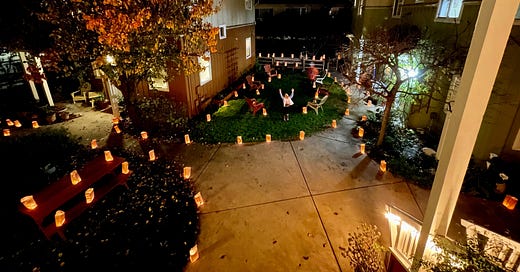



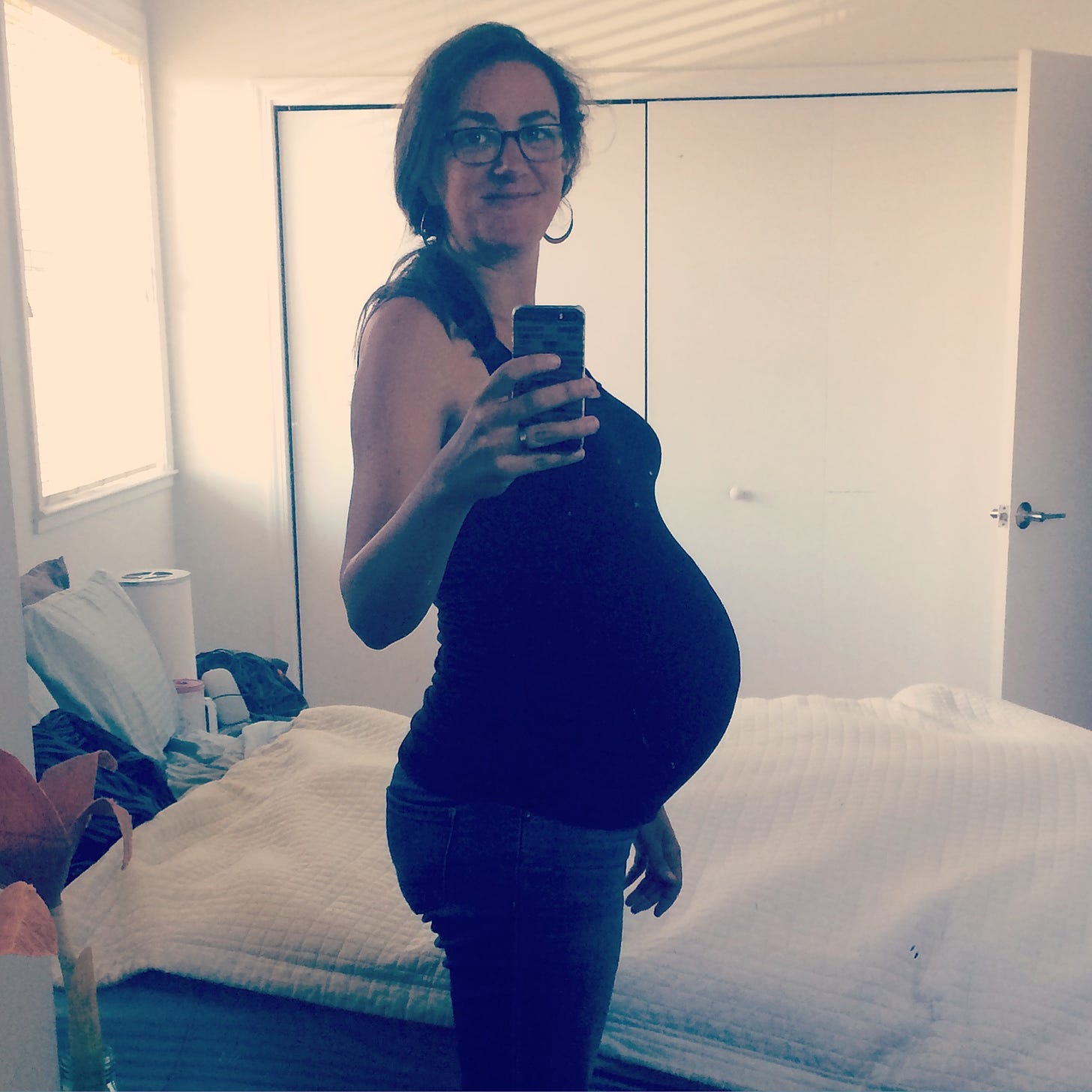
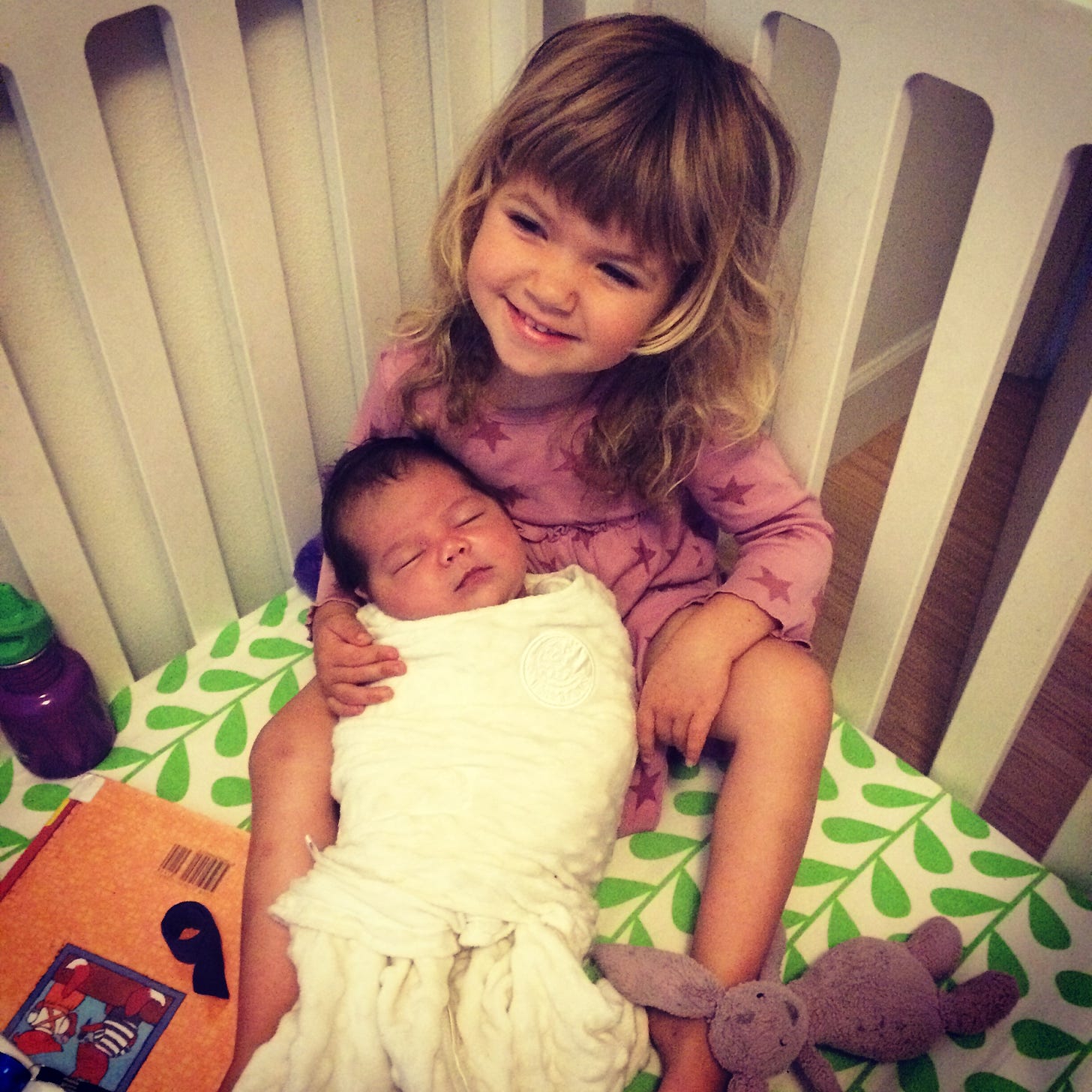
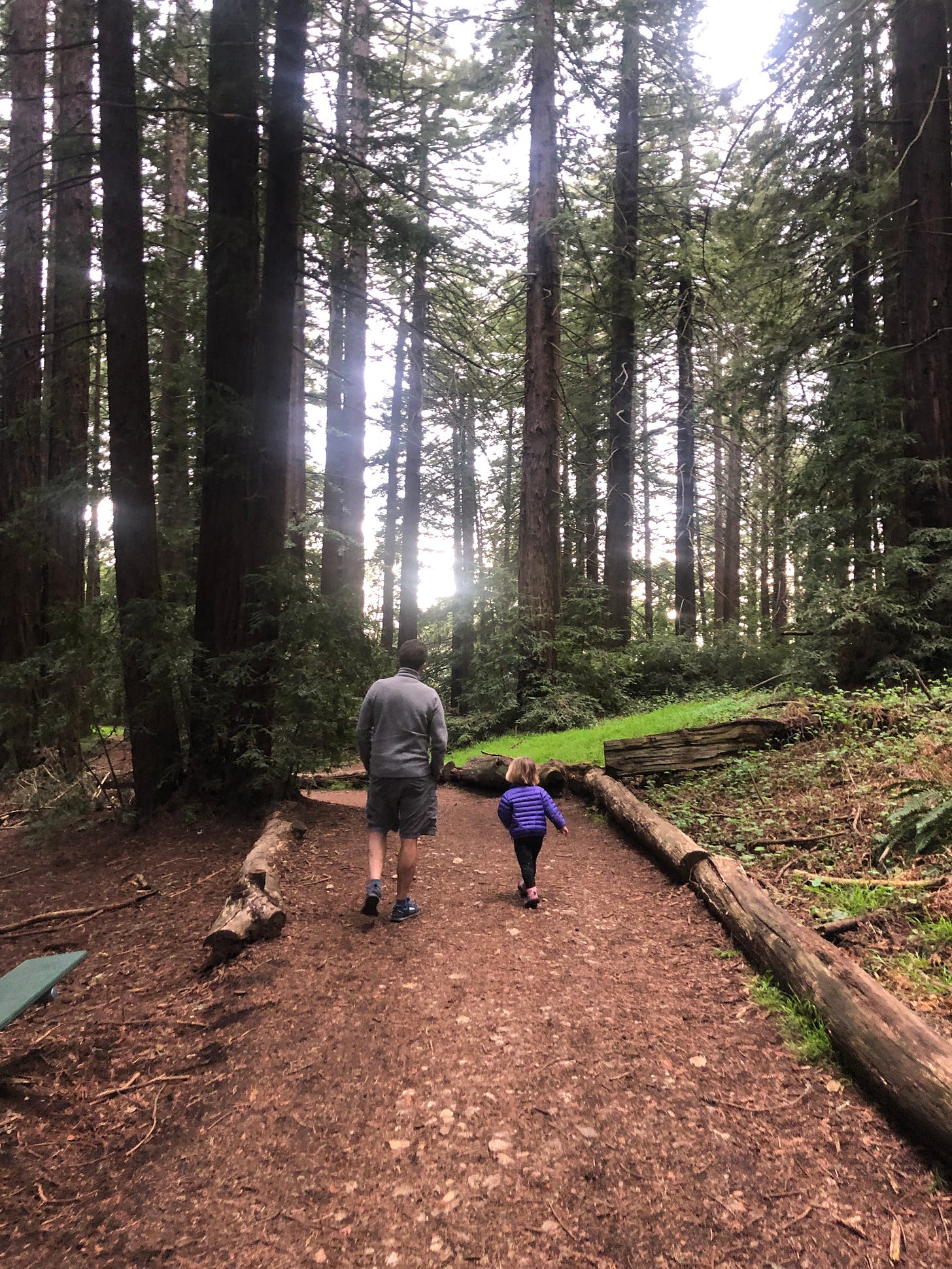
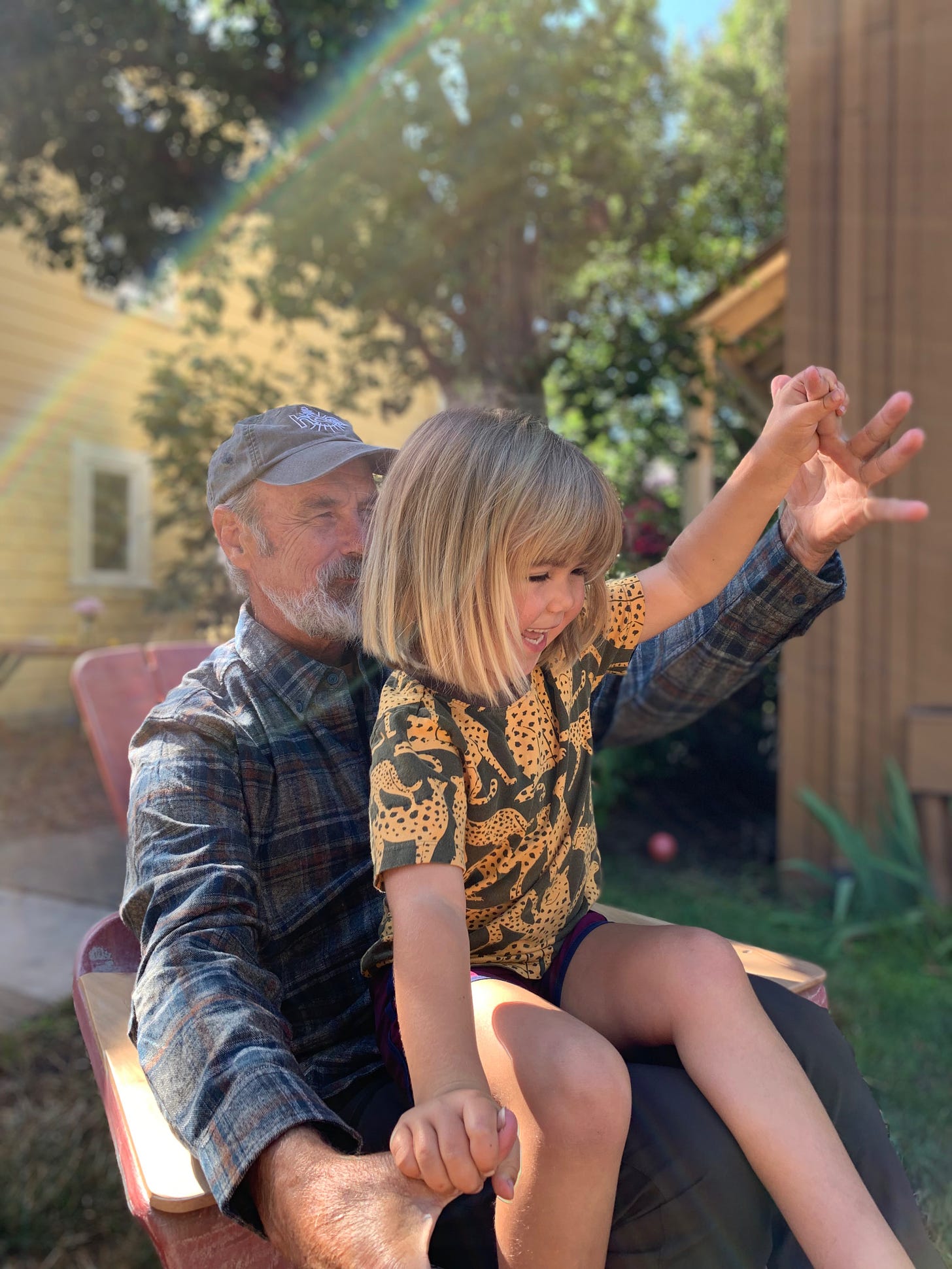
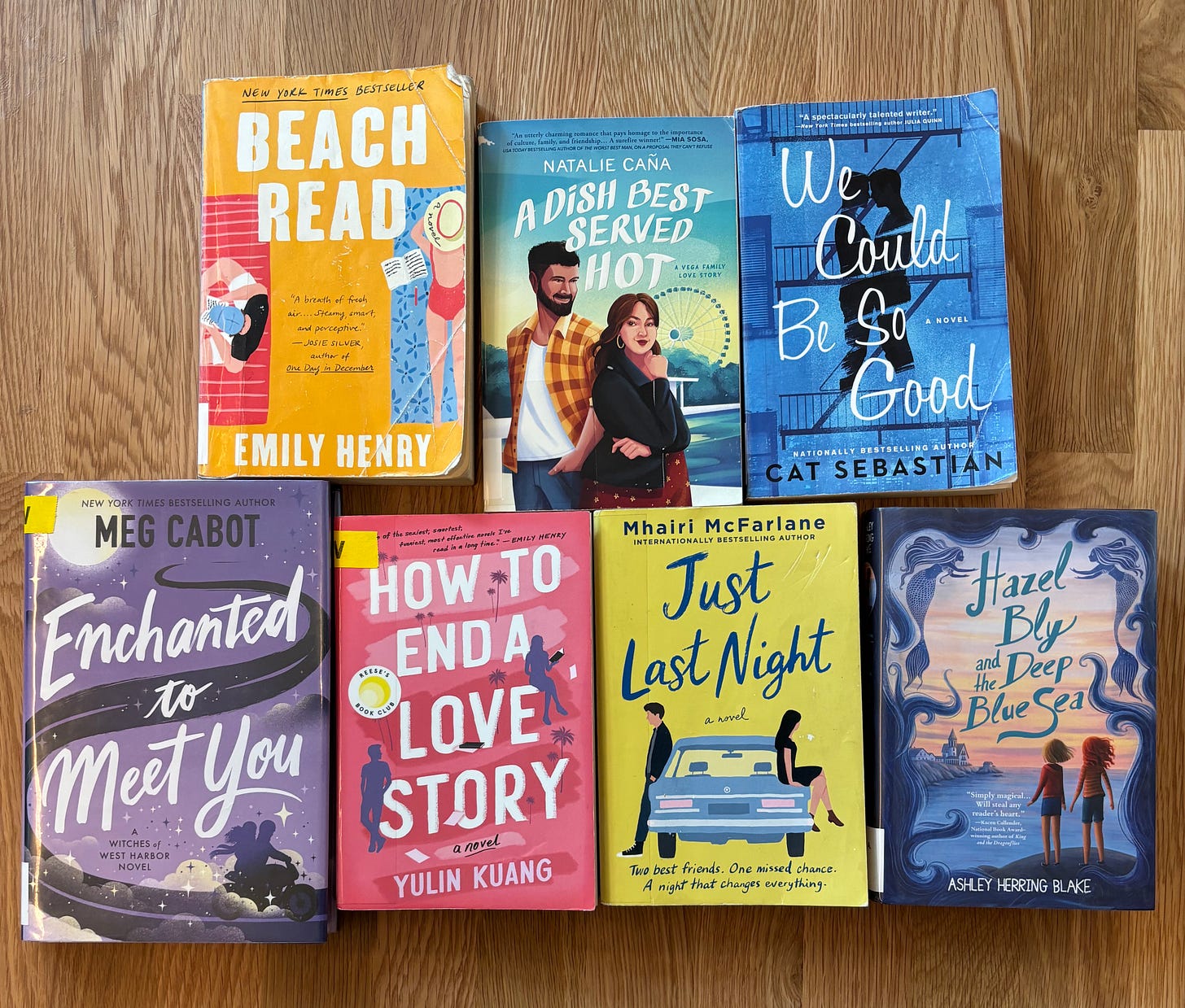
Jesus, Courtney, the amount I am crying in my pajamas right now is NOT SMALL. What a beautiful piece. What a beautiful tribute to your community and home and family and, well, everything. And what a gift to pass on, not just to the new family in your home, but to all of us. Thank you.
What an absolutely stunningly beautiful letter. I was filled with so many emotions - mostly tears! It brought me back to a secret letter that I wrote in 6th grade when my parents sold the house I had grown up in till that point. I hid the handwritten note in the drawer of my closet with a key that didn't unlock anything but I hoped would prompt curiosity to explore. I can't remember the words from 30ish years ago, yet I remember the vivid desire to convey how special my room, the closet, the arch of the Oak branch in the front yard were. I ached for another kid to feel the richness of care that our home had provided to me, a space to explore and grow and yearn and be held. Sadly, the oak tree out front where I'd desperately wanted a horse to be tied up outside one Christmas, the gravel driveway, the garage turned into a bedroom, the house, are no longer there on Aberdeen. I hold the sentiment of that letter in my heart and loved reading your adult version of it this morning.